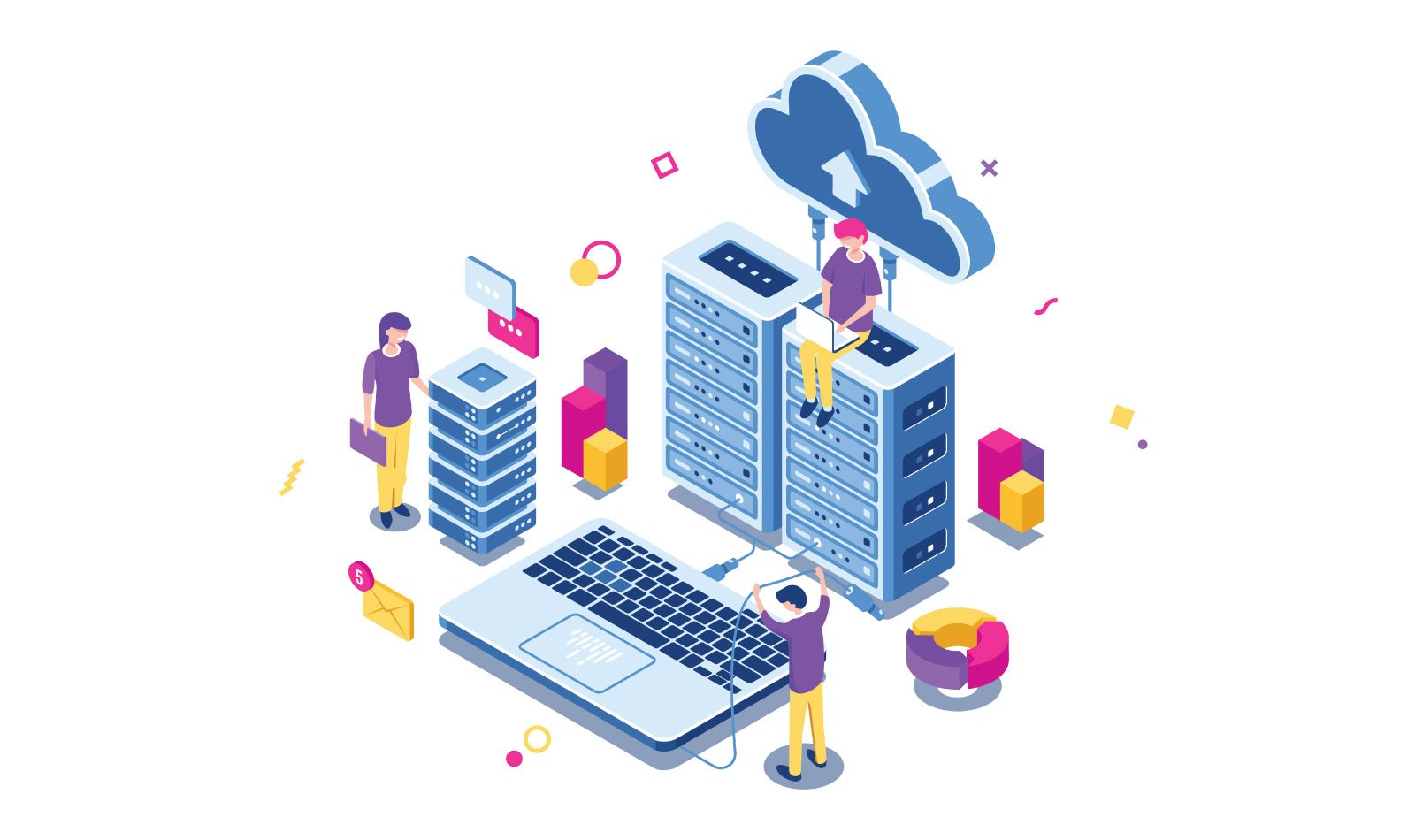The U.S. healthcare industry is ripe for disruption. A McKinsey report shows that healthcare costs now represent almost 18 percent of GDP—a whopping $600 billion. And a Ponemon Institute survey revealed that healthcare fields store 30 percent of global data.
With primary sources, electronic medical records (EMRs), clinical trials, genetic information, billing, wearable data, care management databases, scientific articles, social media, and internet research, the healthcare industry has no shortage of data available. Since 72 percent of people look up health information online and more patients use tools like Zocdoc to communicate with medical professionals and book appointments, it’s easier than ever before to manage customer data in one centralized location.
“Quantified health” is a relatively new movement that integrates data directly from consumer wearables (pedometers, Fitbits, Muse headbands, etc.), blood pressure cuffs, glucometers, and scales into EMRs through smartphones (Apple’s HealthKit, Google Fit, and Samsung Health are a few examples), and can pick up on warning signs faster by tracking changes in behavior and vital signs.
According to a LinkedIn’s U.S. Emerging Jobs report, the data science field has grown by 350 percent since 2012 and only 35,000 candidates have the necessary skills to fill job openings. Data science can either be used for analysis (pattern identification, hypothesis testing, risk assessment) or prediction (machine learning models that predict the likelihood of an event occurring in the future, based on known variables).
With only 3 percent of U.S.-based data scientists working in the healthcare/hospital industry, the need for more trained data experts is growing quickly. Like any industry, healthcare workers should be familiar with statistics, machine learning, and data visualization.
Here are some use cases showing how data science is revolutionizing healthcare.
Drug Discovery
It costs up to $2.6 billion and takes 12 years to bring a drug to market. Big data allows scientists to simulate the reaction of a drug with body proteins and different types of cells and conditions so that it has a much higher likelihood of gaining Food and Drug Administration approval and curing diverse patients (e.g., people with certain mutation profiles).
Mark Ramsey, chief data officer at GSK, shared how large pharmaceutical companies are using clinical trial data and partnerships with biobanks to expedite the drug discovery process. Ramsey said, “We’re really pushing to see how far we can advance use of AI and computer simulation in the drug discovery process with the goal being to take the process to maybe less than two years.”
He went on: “That’s one of the benefits of GSK being a large pharmaceutical company because we have hundreds and hundreds and thousands of clinical trials… If you look at the clinical trial data one of the things that’s extremely important is to make sure the diversity of our clinical trials match the population diversity. We can better understand how to design the trial to be effective and efficient and also match the diversity.”
Startups are also raising significant amounts of venture capital to expedite the drug discovery and testing process. BenevolentAI is a unicorn based in London that has raised $115 million to start over 20 drug programs and create “a bioscience machine brain, purpose-built to discover new medicines and cures for disease.” Its first clinical trial this year in Europe and the U.S. will address excessive daytime sleepiness in Parkinson’s disease.
Disease Prevention
The best way to transform healthcare is to recognize risks and recommend prevention plans before health risks become a major issue. Through wearables and other tracking devices that take into account historical patterns and genetic information, it’s possible to recognize a problem before it gets out of hand.
Omada Health is a digital therapeutics company that uses smart devices to create personalized behavior plans and online coaching to help prevent chronic health conditions, such as diabetes, hypertension, and high cholesterol.
Propeller Health created a GPS-enabled tracker for inhaler usage and synthesizes data on at-risk individuals with environmental data from the Centers for Disease Control and Prevention to propose interventions for asthma sufferers.
On the mental health side, the young Canadian startup Awake Labs tracks data of children suffering from autism through wearables, alerting parents before a meltdown occurs.
Get To Know Other Data Science Students
Esme Gaisford
Senior Quantitative Data Analyst at Pandora
Jonathan Orr
Data Scientist at Carlisle & Company
Melanie Hanna
Data Scientist at Farmer's Fridge
Diagnosis
The National Academies of Sciences, Engineering, and Medicine estimates that around 12 million Americans receive misdiagnoses, which can sometimes have life-threatening repercussions. A BBC article notes that diagnostic errors cause an estimated 40,000 to 80,000 deaths annually.
One of the most effective uses of data science in healthcare is medical imaging. Computers can learn to interpret MRIs, X-rays, mammographies, and other types of images, identify patterns in the data, and detect tumors, artery stenosis, organ anomalies, and more.
Stanford University researchers have also developed data-driven models to diagnose irregular heart rhythms from ECGs more quickly than a cardiologist and distinguish between images showing benign skin marks and malignant lesions.
Iquity, a large-scale predictive analytics healthcare platform, conducted a pilot study by analyzing four million data points from 20 million New York residents. Testing with a combination of misdiagnosed and correctly diagnosed patients of multiple sclerosis, Iquity predicted with 90 percent accuracy the onset of the disease eight months before it could be detected with traditional tools, like magnetic resonance imaging and spinal tapping.
Even online searches can help with diagnostic accuracy. Microsoft researchers analyzed 6.4 million users of Bing whose search results suggested that they had pancreatic cancer. Looking back at previous queries for keywords, such as blood clots and weight loss, researchers found that they could use search engine topics to predict a future pancreatic cancer diagnosis.
Treatment
With more data on individual patient characteristics, it is now possible to deliver more precise prescriptions and personalized care. With initiatives like the National Institutes of Health’s 1000 Genome Project, an open-source study of regions of the genome associated with common diseases like coronary heart disease and diabetes, scientists are learning more about the complexity of human genes and learning that, often, one size does not fit all when it comes to medication and treatments. Data science along with the support of data scientists and machine learning engineers is also helping with the emerging field of gene therapy, which involves inserting genetic material into cells instead of traditional drugs to compensate for abnormal genes.
Emory University and the Aflac Cancer Treatment are partnering with NextBio to study medulloblastoma, a malignant brain tumor typically affecting children. Although radiation therapy was previously the only form of treatment for this type of cancer, NextBio can examine clinical and genomic data to find a patient’s specific biomarkers and customize treatment. Mount Sinai researchers also used biomarker models and cancer genomic data to segment types of bladder cancers that were resistant to chemotherapy and thus would need other treatment methods.
Post-Care Monitoring
After any type of surgery or treatment, there is the risk of complications and recurring pain, which can be difficult to manage once the patient leaves the hospital. Remote in-home monitoring helps doctors stay in touch with patients in real-time while freeing limited and costly hospital resources.
Intel’s Cloudera software helps hospitals predict the chances that a patient will be readmitted in the next 30 days, based on EMR data and socioeconomic status of the hospital’s location.
SeamlessMD’s multimodal platform for post-operative care enabled the Saint Peter’s Healthcare System in New Jersey to reduce by one day its average length of stay post-surgery, saving an average of over $1,500 per patient. Patients checked in daily on their apps to input data on pain levels, allowing the care team to track progress over time and receive intelligent alerts on potential problems.
Hospital Operations
Hospitals are cost-sensitive and face complex operational problems, such as how many staff to assign at certain hours to maximize efficiency, how to ensure enough hospital beds are available to meet patient demand, and how to enhance utilization in the operating room. Predictive analytics can optimize scheduling and even go so far as to tell hospital staff which beds should be cleaned first and which patients may face challenges during the discharge process.
Analytics software can streamline emergency room operations, ensuring that each admitted patient goes through the most efficient order of operations. Emory University Hospital used data science to predict the demand for different types of lab tests, cutting wait time by 75 percent.
Furthermore, business intelligence can streamline billing, identify patients who are at risk of late payments or financial difficulties, and coordinate with financial, collections, and insurance departments. The Center for Medicare and Medicaid Services saved $210.7 million by applying big data analytics in fraud prevention.
What’s Next for Data Science in Healthcare
Now is the right time for a data-driven healthcare industry and many players are participating in this change, including large biotech and pharmaceutical companies, payers and providers, hospitals, university research centers, and venture-backed startups. Data science can save lives by predicting the probability that patients will suffer from certain diseases, providing AI-powered medical advice in rural and remote areas in underserved communities, customizing therapies for different patient profiles, and finding cures to cancer, AIDS, Ebola, and other terminal diseases.
As in any industry, there are concerns about the use of data science in healthcare. From a logistical standpoint, data often lives in disparate states, hospitals, and administrative units and it is challenging to integrate it into one cohesive system. Many patients are additionally concerned about the protection and privacy of their healthcare information, especially as companies like Google face lawsuits for using sensitive health information in ad targeting. Although data science can solve the shortage of doctors in many countries, some worry about outsourcing the important doctor-patient relationship to computer algorithms and machines.
(Click here for the story of a Springboard data science alum who transferred the skills he developed as a scientist into a private sector healthcare role.)
Companies are no longer just collecting data. They’re seeking to use it to outpace competitors, especially with the rise of AI and advanced analytics techniques. Between organizations and these techniques are the data scientists – the experts who crunch numbers and translate them into actionable strategies. The future, it seems, belongs to those who can decipher the story hidden within the data, making the role of data scientists more important than ever.
In this article, we’ll look at 13 careers in data science, analyzing the roles and responsibilities and how to land that specific job in the best way. Whether you’re more drawn out to the creative side or interested in the strategy planning part of data architecture, there’s a niche for you.
Is Data Science A Good Career?
Yes. Besides being a field that comes with competitive salaries, the demand for data scientists continues to increase as they have an enormous impact on their organizations. It’s an interdisciplinary field that keeps the work varied and interesting.
10 Data Science Careers To Consider
Whether you want to change careers or land your first job in the field, here are 13 of the most lucrative data science careers to consider.
Data Scientist
Data scientists represent the foundation of the data science department. At the core of their role is the ability to analyze and interpret complex digital data, such as usage statistics, sales figures, logistics, or market research – all depending on the field they operate in.
They combine their computer science, statistics, and mathematics expertise to process and model data, then interpret the outcomes to create actionable plans for companies.
General Requirements
A data scientist’s career starts with a solid mathematical foundation, whether it’s interpreting the results of an A/B test or optimizing a marketing campaign. Data scientists should have programming expertise (primarily in Python and R) and strong data manipulation skills.
Although a university degree is not always required beyond their on-the-job experience, data scientists need a bunch of data science courses and certifications that demonstrate their expertise and willingness to learn.
Average Salary
The average salary of a data scientist in the US is $156,363 per year.
Data Analyst
A data analyst explores the nitty-gritty of data to uncover patterns, trends, and insights that are not always immediately apparent. They collect, process, and perform statistical analysis on large datasets and translate numbers and data to inform business decisions.
A typical day in their life can involve using tools like Excel or SQL and more advanced reporting tools like Power BI or Tableau to create dashboards and reports or visualize data for stakeholders. With that in mind, they have a unique skill set that allows them to act as a bridge between an organization’s technical and business sides.
General Requirements
To become a data analyst, you should have basic programming skills and proficiency in several data analysis tools. A lot of data analysts turn to specialized courses or data science bootcamps to acquire these skills.
For example, Coursera offers courses like Google’s Data Analytics Professional Certificate or IBM’s Data Analyst Professional Certificate, which are well-regarded in the industry. A bachelor’s degree in fields like computer science, statistics, or economics is standard, but many data analysts also come from diverse backgrounds like business, finance, or even social sciences.
Average Salary
The average base salary of a data analyst is $76,892 per year.
Business Analyst
Business analysts often have an essential role in an organization, driving change and improvement. That’s because their main role is to understand business challenges and needs and translate them into solutions through data analysis, process improvement, or resource allocation.
A typical day as a business analyst involves conducting market analysis, assessing business processes, or developing strategies to address areas of improvement. They use a variety of tools and methodologies, like SWOT analysis, to evaluate business models and their integration with technology.
General Requirements
Business analysts often have related degrees, such as BAs in Business Administration, Computer Science, or IT. Some roles might require or favor a master’s degree, especially in more complex industries or corporate environments.
Employers also value a business analyst’s knowledge of project management principles like Agile or Scrum and the ability to think critically and make well-informed decisions.
Average Salary
A business analyst can earn an average of $84,435 per year.
Database Administrator
The role of a database administrator is multifaceted. Their responsibilities include managing an organization’s database servers and application tools.
A DBA manages, backs up, and secures the data, making sure the database is available to all the necessary users and is performing correctly. They are also responsible for setting up user accounts and regulating access to the database. DBAs need to stay updated with the latest trends in database management and seek ways to improve database performance and capacity. As such, they collaborate closely with IT and database programmers.
General Requirements
Becoming a database administrator typically requires a solid educational foundation, such as a BA degree in data science-related fields. Nonetheless, it’s not all about the degree because real-world skills matter a lot. Aspiring database administrators should learn database languages, with SQL being the key player. They should also get their hands dirty with popular database systems like Oracle and Microsoft SQL Server.
Average Salary
Database administrators earn an average salary of $77,391 annually.
Data Engineer
Successful data engineers construct and maintain the infrastructure that allows the data to flow seamlessly. Besides understanding data ecosystems on the day-to-day, they build and oversee the pipelines that gather data from various sources so as to make data more accessible for those who need to analyze it (e.g., data analysts).
General Requirements
Data engineering is a role that demands not just technical expertise in tools like SQL, Python, and Hadoop but also a creative problem-solving approach to tackle the complex challenges of managing massive amounts of data efficiently.
Usually, employers look for credentials like university degrees or advanced data science courses and bootcamps.
Average Salary
Data engineers earn a whooping average salary of $125,180 per year.
Database Architect
A database architect’s main responsibility involves designing the entire blueprint of a data management system, much like an architect who sketches the plan for a building. They lay down the groundwork for an efficient and scalable data infrastructure.
Their day-to-day work is a fascinating mix of big-picture thinking and intricate detail management. They decide how to store, consume, integrate, and manage data by different business systems.
General Requirements
If you’re aiming to excel as a database architect but don’t necessarily want to pursue a degree, you could start honing your technical skills. Become proficient in database systems like MySQL or Oracle, and learn data modeling tools like ERwin. Don’t forget programming languages – SQL, Python, or Java.
If you want to take it one step further, pursue a credential like the Certified Data Management Professional (CDMP) or the Data Science Bootcamp by Springboard.
Average Salary
Data architecture is a very lucrative career. A database architect can earn an average of $165,383 per year.
Machine Learning Engineer
A machine learning engineer experiments with various machine learning models and algorithms, fine-tuning them for specific tasks like image recognition, natural language processing, or predictive analytics. Machine learning engineers also collaborate closely with data scientists and analysts to understand the requirements and limitations of data and translate these insights into solutions.
General Requirements
As a rule of thumb, machine learning engineers must be proficient in programming languages like Python or Java, and be familiar with machine learning frameworks like TensorFlow or PyTorch. To successfully pursue this career, you can either choose to undergo a degree or enroll in courses and follow a self-study approach.
Average Salary
Depending heavily on the company’s size, machine learning engineers can earn between $125K and $187K per year, one of the highest-paying AI careers.
Quantitative Analyst
Qualitative analysts are essential for financial institutions, where they apply mathematical and statistical methods to analyze financial markets and assess risks. They are the brains behind complex models that predict market trends, evaluate investment strategies, and assist in making informed financial decisions.
They often deal with derivatives pricing, algorithmic trading, and risk management strategies, requiring a deep understanding of both finance and mathematics.
General Requirements
This data science role demands strong analytical skills, proficiency in mathematics and statistics, and a good grasp of financial theory. It always helps if you come from a finance-related background.
Average Salary
A quantitative analyst earns an average of $173,307 per year.
Data Mining Specialist
A data mining specialist uses their statistics and machine learning expertise to reveal patterns and insights that can solve problems. They swift through huge amounts of data, applying algorithms and data mining techniques to identify correlations and anomalies. In addition to these, data mining specialists are also essential for organizations to predict future trends and behaviors.
General Requirements
If you want to land a career in data mining, you should possess a degree or have a solid background in computer science, statistics, or a related field.
Average Salary
Data mining specialists earn $109,023 per year.
Data Visualisation Engineer
Data visualisation engineers specialize in transforming data into visually appealing graphical representations, much like a data storyteller. A big part of their day involves working with data analysts and business teams to understand the data’s context.
General Requirements
Data visualization engineers need a strong foundation in data analysis and be proficient in programming languages often used in data visualization, such as JavaScript, Python, or R. A valuable addition to their already-existing experience is a bit of expertise in design principles to allow them to create visualizations.
Average Salary
The average annual pay of a data visualization engineer is $103,031.
Resources To Find Data Science Jobs
The key to finding a good data science job is knowing where to look without procrastinating. To make sure you leverage the right platforms, read on.
Job Boards
When hunting for data science jobs, both niche job boards and general ones can be treasure troves of opportunity.
Niche boards are created specifically for data science and related fields, offering listings that cut through the noise of broader job markets. Meanwhile, general job boards can have hidden gems and opportunities.
Online Communities
Spend time on platforms like Slack, Discord, GitHub, or IndieHackers, as they are a space to share knowledge, collaborate on projects, and find job openings posted by community members.
Network And LinkedIn
Don’t forget about socials like LinkedIn or Twitter. The LinkedIn Jobs section, in particular, is a useful resource, offering a wide range of opportunities and the ability to directly reach out to hiring managers or apply for positions. Just make sure not to apply through the “Easy Apply” options, as you’ll be competing with thousands of applicants who bring nothing unique to the table.
FAQs about Data Science Careers
We answer your most frequently asked questions.
Do I Need A Degree For Data Science?
A degree is not a set-in-stone requirement to become a data scientist. It’s true many data scientists hold a BA’s or MA’s degree, but these just provide foundational knowledge. It’s up to you to pursue further education through courses or bootcamps or work on projects that enhance your expertise. What matters most is your ability to demonstrate proficiency in data science concepts and tools.
Does Data Science Need Coding?
Yes. Coding is essential for data manipulation and analysis, especially knowledge of programming languages like Python and R.
Is Data Science A Lot Of Math?
It depends on the career you want to pursue. Data science involves quite a lot of math, particularly in areas like statistics, probability, and linear algebra.
What Skills Do You Need To Land an Entry-Level Data Science Position?
To land an entry-level job in data science, you should be proficient in several areas. As mentioned above, knowledge of programming languages is essential, and you should also have a good understanding of statistical analysis and machine learning. Soft skills are equally valuable, so make sure you’re acing problem-solving, critical thinking, and effective communication.
Since you’re here…Are you interested in this career track? Investigate with our free guide to what a data professional actually does. When you’re ready to build a CV that will make hiring managers melt, join our Data Science Bootcamp which will help you land a job or your tuition back!






